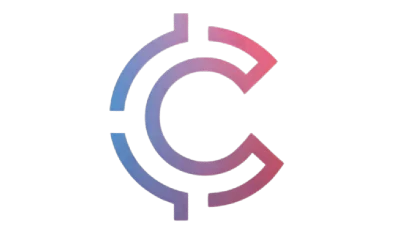
Transforming Industries Beyond Cryptocurrencies: How Blockchain is Changing the World
Blockchain technology is often associated with cryptocurrencies like Bitcoin, but its potential stretches far beyond the digital currency space. With its ability to provide secure, transparent, and decentralized systems, blockchain is transforming various industries in ways that were once unimaginable. From healthcare to supply chain management, blockchain is creating solutions that improve efficiency, security, and trust in every sector it touches.
In this article, we’ll explore how blockchain technology is revolutionizing industries beyond cryptocurrencies and why it’s becoming an essential tool in the modern world.
What is Blockchain? A Simple Explanation
Before we dive into the specific applications, let’s first understand what blockchain is and how it works. Blockchain is a decentralized, distributed ledger that securely records transactions across multiple computers. Unlike traditional systems where a central authority controls data, blockchain relies on a network of nodes (computers) to validate and store information, making it highly secure and transparent.
Each block in the chain contains transaction data, and once a block is added, it cannot be changed or deleted, ensuring immutability and security. This makes blockchain technology ideal for applications that require trust and data integrity, such as financial transactions, supply chain tracking, and voting systems.
Blockchain in Healthcare: Improving Efficiency and Security
The healthcare industry is facing numerous challenges when it comes to data security, patient privacy, and the management of healthcare records. Blockchain technology has the potential to address many of these issues by offering a secure, transparent, and easily accessible system for storing and sharing patient information.
By utilizing blockchain, healthcare providers can ensure that patient records are secure and tamper-proof. Additionally, blockchain enables patients to have more control over their own health data, granting access only to authorized parties and ensuring data privacy.
Blockchain can also improve the traceability of pharmaceuticals, ensuring that drugs are sourced from legitimate manufacturers and are not tampered with along the supply chain. This can help reduce the risk of counterfeit drugs and improve patient safety.
Blockchain in Finance: Revolutionizing Transactions
The finance industry is one of the sectors that stands to benefit the most from blockchain technology. Blockchain’s ability to facilitate secure and instantaneous transactions without the need for intermediaries is reshaping how financial institutions and consumers interact.
Cross-border payments can now be processed quickly and at a fraction of the cost compared to traditional banking systems. With blockchain, payments can be sent across borders in minutes rather than days, and the associated fees are significantly lower.
Additionally, smart contracts self-executing contracts with the terms of the agreement directly written into code are becoming more common in finance. These contracts automatically execute when conditions are met, reducing the need for intermediaries and minimizing the risk of human error.
Supply Chain Management: Blockchain for Transparency
Supply chains are complex systems that involve multiple parties, making them vulnerable to fraud, inefficiency, and lack of transparency. Blockchain offers a solution by providing a transparent and secure way to track goods from production to delivery.
With blockchain, every transaction in the supply chain is recorded on an immutable ledger, allowing businesses and consumers to trace the origin and journey of products. This level of transparency ensures that companies cannot misrepresent the quality or source of their products, helping to build trust with customers.
Moreover, blockchain reduces the risk of fraud by ensuring that all parties involved in the supply chain have access to the same, unalterable information.
Blockchain in Voting Systems: Ensuring Security and Trust
One of the most exciting potential applications of blockchain technology is in the realm of voting systems. Elections are crucial to the functioning of democracies, and ensuring their integrity is of paramount importance.
Blockchain could make elections more secure by providing a tamper-proof system for recording votes. Voters could cast their ballots from anywhere in the world, knowing that their vote would be securely stored and counted. Blockchain also makes it nearly impossible to alter votes after they’ve been cast, ensuring transparency and reducing the risk of election fraud.
Blockchain in Real Estate: Streamlining Transactions
The real estate industry is notoriously slow and bureaucratic, with property transactions often taking weeks or even months to complete. Blockchain has the potential to streamline the process by digitizing contracts, property titles, and other important documents.
By using blockchain, real estate transactions can be completed faster, with fewer intermediaries and lower transaction costs. Additionally, blockchain helps reduce fraud by ensuring that property ownership records are secure and immutable.
Blockchain in the Energy Sector: Decentralizing Power
The energy industry is undergoing a major transformation, with a growing shift toward renewable energy and decentralized power grids. Blockchain technology is playing a critical role in this transformation by enabling peer-to-peer energy trading and improving the management of energy distribution.
With blockchain, individuals and businesses can buy and sell excess energy directly from each other, bypassing traditional utilities. This decentralization not only gives consumers more control over their energy use but also helps reduce costs and improve the efficiency of the power grid.
Blockchain in Digital Identity: Securing Personal Data
In today’s digital age, identity theft and data breaches are serious concerns. Blockchain technology offers a solution by providing a secure and decentralized system for managing digital identities.
By using blockchain, individuals can have more control over their personal data and share it only with trusted parties. Blockchain-based identity systems are more secure than traditional methods, as they are nearly impossible to alter or hack.
Blockchain in Government: Enhancing Transparency and Reducing Corruption
Governments around the world are increasingly exploring blockchain as a tool to enhance transparency and reduce corruption. By using blockchain to manage public records, voting systems, and government contracts, governments can create more secure and transparent systems.
For example, blockchain can be used to record land ownership titles, ensuring that they are secure, immutable, and easily accessible to the public. This can help prevent land disputes and reduce corruption in land management.
Challenges of Blockchain Adoption
While blockchain offers immense potential, its widespread adoption is not without challenges. Some of the main hurdles include:
- Scalability issues: Blockchain networks can become slow and expensive as they scale, making it difficult to handle large volumes of transactions.
- Regulatory uncertainty: Governments around the world are still grappling with how to regulate blockchain technology, which can create uncertainty for businesses.
- Integration with legacy systems: Many industries still rely on traditional systems, making it difficult to integrate blockchain technology seamlessly.
The Future of Blockchain: What’s Next?
As blockchain technology continues to evolve, we can expect even more industries to explore its potential. From healthcare to finance, blockchain is set to revolutionize how we interact with data and digital systems.
The future of blockchain is bright, with continued advancements in scalability, security, and adoption. As more industries adopt blockchain solutions, we’ll see even more groundbreaking innovations that will transform the world as we know it.
Conclusion
Blockchain technology is far more than just the backbone of cryptocurrencies. It is a powerful tool that is transforming industries across the globe. From improving security and transparency in healthcare to revolutionizing supply chains and voting systems, blockchain’s potential is limitless.
As we continue to explore and adopt blockchain solutions, we can expect it to have an even greater impact on the world, driving innovation, efficiency, and trust in countless sectors.
